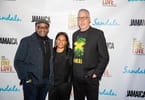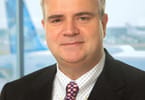Apre yo fin egzamine rapò plis pase 45,000 patisipan yo nan esè klinik yo, Harvard Medical School chèchè te di ke èstime nan la Vaksen kont kovid-19 'efè segondè' ke moun reklame fè eksperyans apre jab la, ki te koze pa atant moun yo epi yo pa pa vaksen yo.
Anpil moun tèlman enkyete Vaksen kont kovid-19 'efè segondè' yo aktyèlman santi yo menm si yo jwenn plasebo, nouvo rechèch montre.
Plizyè efè segondè 'sistemik', tankou tèt fè mal, fatig, ak doulè nan jwenti yo te rapòte nan tou de mwatye nan gwoup rechèch la: pa moun ki te resevwa divès vaksen COVID-19, ak pa moun ki san yo te resevwa plasebo.
Apre analize rapò yo, syantis ki soti nan Boston ki baze sou Beth Israel Deaconess Medical Center te rive nan konklizyon ke sa yo rele 'efè nocebo' - sansasyon dezagreyab ki te koze pa enkyetid oswa move atant - matirite pou twa ka nan tout efè segondè vaksen yo rapòte.
Rapò a, ki te pibliye nan jounal JAMA Network Open, di ke 35% nan moun ki resevwa plasebo rapòte efè segondè apre premye dòz la ak 32% apre dezyèm lan. Siyifikativman plis "evènman negatif" (AE) te rapòte nan gwoup vaksen yo, men sa yo rele "repons nocebo" matirite pou "76% nan AE sistemik apre premye a. Vaksen kont kovid-19 dòz la ak 52% apre dezyèm dòz la."
Syantis yo remake ke, byenke rezon ki fè yo ezitasyon vaksinasyon yo se "divès ak konplèks," enkyetid sou efè segondè potansyèl de la. Vaksen kont kovid-19 "sanble yo se yon faktè enpòtan" ak "pwogram vaksinasyon piblik yo ta dwe konsidere repons sa yo segondè nocebo."
Youn nan Harvard Medical School pwofesè ki enplike nan rechèch la, eksplike syans ki dèyè "efè nocebo," fè remake ke "sentòm ki pa espesifik," tankou maltèt ak fatig, yo ki nan lis nan anpil ti liv enfòmasyon kòm efè segondè tipik nan vaksen COVID-19.
"Prèv sijere ke kalite enfòmasyon sa a ka lakòz moun mal atribiye sansasyon komen background chak jou kòm ki rive nan vaksen an oswa lakòz enkyetid ak enkyetid ki fè moun ipè alèt nan santiman kòporèl sou evènman negatif," li te di.
KISA POU RETIRE NAN ATIK SA A:
- One of the Harvard Medical School professors involved in the research, explained the science behind the “nocebo effect,” pointing out that “nonspecific symptoms,” such as headache and fatigue, are listed in many information booklets as typical side effects of COVID-19 vaccines.
- After scrutinizing the reports of more than 45,000 clinical trial participants, Harvard Medical School researchers said that the bulk of the COVID-19 vaccine ‘side effects' that people claim to experience after the jab, caused by people’s expectations and not by the vaccines.
- Significantly more “adverse events” (AEs) were reported in the vaccine groups, but so called “nocebo responses” accounted for “76% of systemic AEs after the first COVID-19 vaccine dose and 52% after the second dose.























